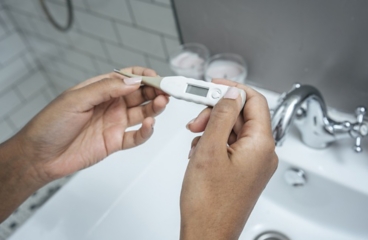Fever: Care Instructions
Overview

A fever is a high body temperature. It's one way your body fights illness. A temperature of up to 102°F can
be helpful, because it helps the body respond to infection. Most healthy people can have a fever as high as
103°F to 104°F for short periods of time without problems. In most cases, a fever means that you have a minor
illness.
Follow-up care is a key part of your treatment and safety. Be sure to make and go to all
appointments, and call your doctor if you are having problems. It's also a good idea to know your test results
and keep a list of the medicines you take.
How can you care for yourself at home?
-
Drink plenty of fluids to prevent dehydration. Choose water and other clear liquids. If you have to limit
fluids because of a health problem, talk with your doctor before you increase the amount of fluids you
drink.
-
Take an over-the-counter medicine, such as acetaminophen (Tylenol), ibuprofen (Advil, Motrin) or naproxen
(Aleve), to relieve your symptoms. Read and follow all instructions on the label. No one younger than 20
should take aspirin. It has been linked to Reye syndrome, a serious illness.
-
Rest, and limit activity.
-
Wear lightweight clothing.
-
Eat mild foods, such as soup.
When should you call for help?
 Call your
doctor now or seek immediate medical care if:
Call your
doctor now or seek immediate medical care if:
Watch closely for changes in your health, and be sure to contact your doctor if:
Current as of: August 6, 2023
Content Version: 14.0
Care instructions adapted under license by your
healthcare professional. If you have questions about a medical condition or this instruction, always ask
your healthcare professional. Healthwise, Incorporated disclaims any warranty or liability for your use of
this information.